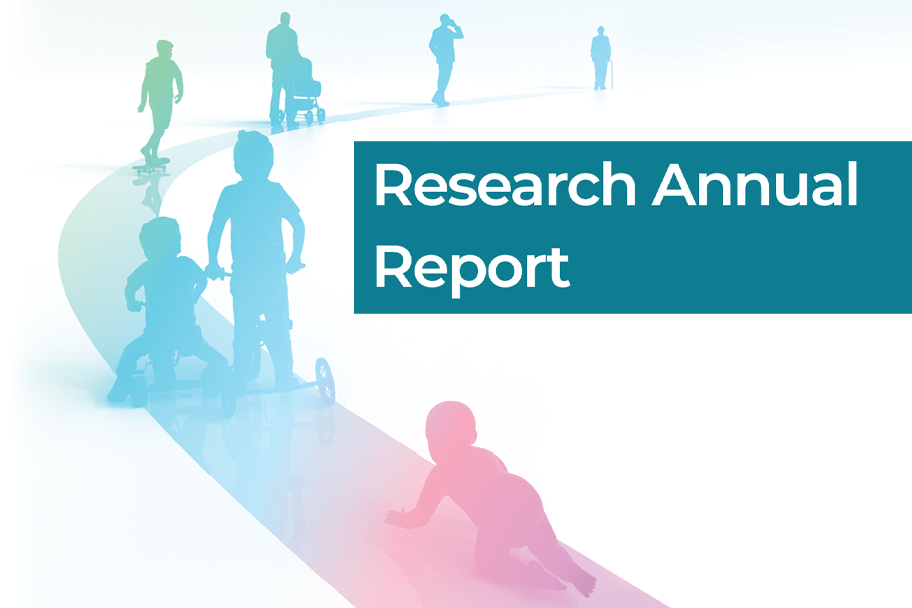Biostatistics and Epidemiology Research
The Division of Biostatistics and Epidemiology at Cincinnati Children’s is the nation’s largest pediatric research hospital unit focused on biostatistics, epidemiology and clinical data management. Our goal is to lead and support research projects that improve child health. Our vision is “Healthy children, healthy families and healthy communities through rigorous research.”
Our multidisciplinary team of nearly 100 dedicated faculty, trainees and staff strives for research excellence. We advance community health and pediatric care while setting the standard for scientific rigor. We are leaders of cutting-edge methodologic and applied research and advocates of team science who integrate advanced statistical and epidemiological methods to explain complex health phenomena. Our research aims to fuel evidence-based decision making and provide crucial insight that advance child and community health and development.
Our Research
We aim for excellence in culture, education, training and operations. We provide a diverse, supportive work environment and equip our team with the necessary education, tools and organizational structure that facilitates innovative work with efficiency, transparency and a focus on advancing health.
Our faculty leads independent research in various fields of biostatistics and epidemiology, collaborating with research teams globally, often supported by the National Institutes of Health (NIH):
- Augmentative technologies to improve language development in deaf/hard of hearing children
- Bayesian approaches to causal inference
- Childhood predictors of adult cardiovascular disease
- Healthcare employee safety research
- Environmental exposures and child health
- Place-based epidemiology/health equity research
- Predictive modeling of lung function decline in cystic fibrosis
- Transgenerational effects of childhood experiences of the parents on child health and development
We design and operate data coordinating centers for large research networks:
- We are the Data Management and Coordinating Center (DMCC) for the Rare Diseases Clinical Research Network (RDCRN). Funded by 11 of the National Institutes of Health, the RDCRN supports 20 research consortia comprising 358 sites in 12 countries. Cincinnati Children’s received a five-year $28 million grant in 2019 from the National Center for Advancing Translational Sciences to host the DMCC and is poised to receive a renewal award for five more years.
- We serve as the Administrative Coordinating Center (ACC) for the Bench to Bassinet program, funded by the National Heart, Lung, and Blood (NHLBI) Institute. This project aims to use clinical and genetic data collected from across nine pediatric hospitals in the U.S. to learn more about how the heart develops and why children are born with heart problems. Cincinnati Children’s has supported the Bench to Bassinet program since 2016 and in 2021 received an additional four-year, $21 million grant from the NHLBI to continue our efforts.
We contribute to the research of most of Cincinnati Children’s 40+ divisions, as well as divisions at the University of Cincinnati and other institutions, collaborating on clinical, translational and methodologic research. We are closely aligned with NIH-funded Cincinnati Children’s and University of Cincinnati (UC) center:
- Center for Clinical and Translational Science and Training (CCTST). Our work with the CCTST connects us to investigators on the entire UC campus, giving us the opportunity to educate trainees and junior scientists in our disciplines and to develop collaborations within UC and with other 60+ hubs of the CTSA consortium nationwide.
We also collaborate by offering our expertise as a service. We work to deliver excellence in consultation and service through ongoing communication with our partners, offering guidance in best practices and innovative approaches. This lets us provide accurate, high-quality, tailor-made and timely deliverables. Our partners' research and patient care are better because of our contributions.
We house the Data Management and Analysis Collaborative (DMAC), a Cincinnati Children’s shared facility, which provides efficient research collaboration in clinical data science, including data collection and management, data wrangling, statistical analysis, regulatory reporting, and manuscript-ready tables and figures. The DMAC supports a broad range of projects, serving internal and external clients. More specific areas of support that leverage the expertise within DMAC include:
- Microbial Metagenomics Analysis Center (MMAC). This part of the DMAC supports researchers by providing advanced study design, bioinformatic processing of metagenomic sequencing data, integration of metagenomic and clinical data structures, and the statistical analyses of microbial community samples.
- Geospatial Research Accelerator for Precision Population Health (GRAPPH). This part of the DMAC offers HIPAA-compliant geocoding for multi-site studies, linkage to geospatial data sources, mapping/visualization, spatial modeling and population-level causal inference. GRAPPH trains researchers, clinicians and community partners to integrate place-based characteristics and geospatial techniques into research and patient care. It collaborates with the Michael Fisher Child Health Equity Center and the Decoding Mental Health Center.
Research By the Numbers
The Biostatistics and Epidemiology research team is highly successful at publishing our findings in top journals and securing diverse funding for our work. We receive grants from federal agencies such as the National Institutes of Health, The Patient-Centered Outcomes Research Institute, the Agency for Healthcare Research and Quality, and the National Science Foundation. Our portfolio includes awards from foundations like the Cystic Fibrosis Foundation, as well as Cincinnati Children’s intramural awards and Cincinnati Children’s Research Foundation endowments and support.
- About $15M/year in research funding
- Our extensive work in collaborative research with investigators from other Cincinnati Children’s divisions provides a significant amount of support for our faculty and staff
- About 300 publications a year/15 publications per faculty member




